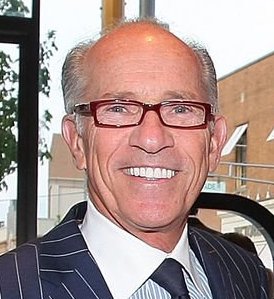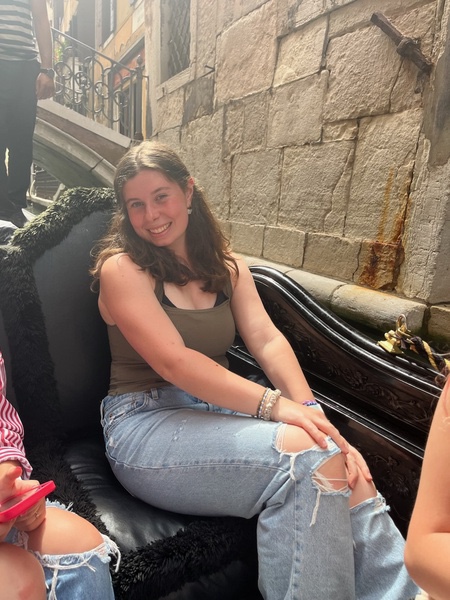How I got here: Fred Fish
He shared his high school, college, and other early experiences that helped him become a successful real estate leader.

Michael Loccisano/Getty Images
Fred Fish is the Founder of Treeco, a real estate development firm in Englewood, NJ that develops, owns, and manages a diversified portfolio of properties in urban and highly populated suburban locations along the Northeast corridor.
Fred Fish is the Founder of Treeco, a real estate development firm in Englewood, NJ that develops, owns, and manages a diversified portfolio of properties in urban and highly populated suburban locations along the northeast corridor.
Treeco’s portfolio includes class-A, everyday shopping centers, ranging from 75,000 – 350,000 square feet, anchored by national retailers and major grocery stores. Treeco’s mixed-use properties combine street level retail with luxury apartments, professional offices, and multi-tenant health care.
He shared his high school, college, and other early experiences that helped him become a successful real estate leader.
Samantha Lazar: How would you describe what you do currently?
Fred Fish: I’m a real estate developer. What we do is we organize property and we proceed to have it developed according to the zoning code. We engage builders and contractors to build according to our development plans.
SL: When did you first become interested in real estate development?
FF: When I was a young boy, approximately ten years old, my father, who was a real estate investor and a certified public accountant, took me to a shopping center that he had an interest in. He explained to me–as best he could to a ten year old–the concept of ownership, the mixing of the right tenants, and the importance of location. My father took me a couple of times to show me the process of acquiring medium sized parcels in the 1950s or early 1960s when they were readily available all over New Jersey.
SL: Can you tell me about your high school experience? Were there skills you learned that helped you in your career or clubs you were involved in?
FF: I think what helped me in school were specific teachers. I had the privilege of having two or three superb educators who not only wanted to educate, but wanted to enthrall students about their subject matter. They were unique and they made a tremendous difference. They really challenged me as a student. It wasn’t a specific course that had a major impact, it was the teacher himself or herself.
SL: Was there any specific teacher that you think of that helped you or pushed you further? Was there a specific teacher that connected with you most?
FF: My fifth grade teacher was the first male teacher I’d had up until then. The school system until then was predominantly made up of female teachers, and so having a male teacher was unique at the time. What this teacher would do was that he would challenge you to write a small essay, but you couldn’t write more than the front of one page. If the front of the page had 14 lines on it, you could only write 14 lines. I had to think about it and come to a beginning, a middle and a conclusion in that specific space. And he would go over it and we would spend an enormous amount of time on it together, and this was really transitional for me, as a fifth grader.
SL: Can you tell me about your college experience and how it prepared you for your career?
FF: It was again about two or three educators who inspired me to be able to engage and think thoroughly about the process of doing something. They taught me that it was important to have a passion about what you are doing. I learned that if you are enthused and excited about something, you are going to do it much better, and you are going to get a more meaningful response from yourself.
Related to real estate, what I learned over time is that development is usually a partnership with the community on a piece of property. There is a set of rules that speak to what the community would like you to do, and then you have to turn the property into something that is physically, architecturally, economically, and culturally viable, and provides a service that people want.
When people think about where they want to live, they think “Why do I want to live here?” I want to live here usually because it is within walking distance of socialization, a group of retail merchants, a movie theater, performing arts center, or other true amenities. It is the totality of the community and life, so folks ultimately can walk out and engage with other people.
SL: Who were the most influential people in your life growing up? What impact did they have on you?
FF: My parents were a tremendous influence on me. By their deeds, they showed me that it’s important to not just to do for yourself, but to do for the community. So I saw my father and my mother doing things that benefit the community at large, for the betterment of a large group of people.
My brother was also very instrumental because he was significantly older than me, nine years older than me, and he was a liaison between what my parents might tell me and what he in fact did growing up.
SL: What would you say are your biggest accomplishments in your career?
FF: The first real estate project I ever got involved in as an individual was I bought a tiny building that was 2400 square feet, 1200 on the first floor and 1200 on the second floor. It cost a total of $80,000 of which 25% was in cash and 75% was in mortgage.
My brother took one third, my mother took one third, and I took one third, and what it taught me was that every dollar was important. If a tenant moved out because the lease was up, we would go in and clean the premises ourselves because we needed to save the 200 dollars that somebody would have required to make it habitable for the next person.
For Palisades Court in Englewood, we acquired about ten different parcels of real estate all contiguous, and we attached it to the downtown. There are 20+ stores there providing a meeting place for all people, offering everyday services, everyday needs. We built something that is viable for the community for the well to do, the middle income, and lower income. It is a vibrant community and as an entity including all of its stores, it generates in excess of 125 million dollars a year in sales.
And before we came in, it was an area in need of renewal. It was really down and out. There was a supermarket that you didn’t want to shop in. You only shopped there if you had no choice. There were stores that were not providing for the community, and now they are adequately providing, along with the rest of the retailers. Our goal is that for every successful retailer, the better they collectively do, the better we do too, and that’s what it’s all about.

Samantha Lazar is a senior at Hills. She joined the publication her freshman year as a staff writer and primarily wrote articles for the College Corner section. This year, Lazar is eager to continue writing articles and managing stories for the Life & Style section.
Fun fact: Lazar trained her dog to be a therapy dog, and she volunteers at a library with her.












































